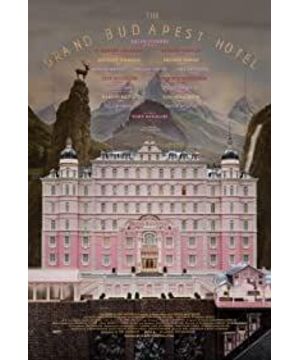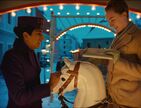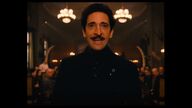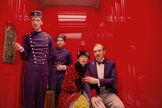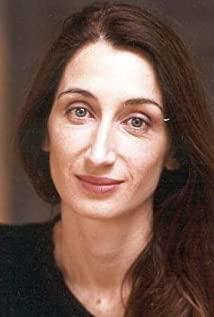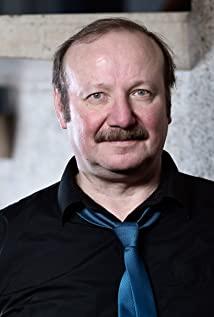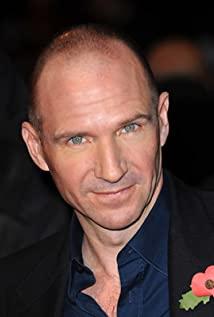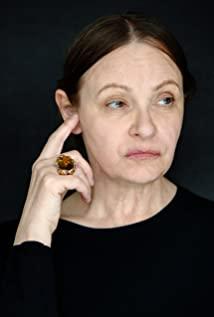A good movie can often build a bridge between the personal experience of the director and screenwriter and the growth experience of the audience. It can break the time and space structure of the story and create an independent narrative dimension, which is described in a fashionable word, called parallelism. universe.
Many viewers will relish the retro sets and the elegance of European gentlemen in "The Grand Budapest Hotel", and even analyze the nationalities and weapon backgrounds of the characters in the shooting scenes. The 2014 movie can only restore an imaginary world in the hearts of the director and the audience - a world that makes the hearts of all those who can't get it disturbed.
In the public comments, it is generally recognized that "The Grand Budapest Hotel" uses a four-layer narrative structure, that is, the text narration in the novel read by the girl, the self-report of the novel's author in the study, the author's interview with the novel's protagonist, and the actual occurrence of the story. scene reproduction. It is a pity that they all ignore another most basic and indispensable narrative level, that is, the director and screenwriter's understanding, restoration and reproduction of the story. Undoubtedly, the appearance of any scene in the film is controlled by this invisible hand. Therefore, if this layer is added, it should be the fifth layer of time and space.
So why did the director choose such a story, and why did he use such a unique narrative technique? Why do so many viewers have emotions like reminiscence, nostalgia, and nostalgia? For a movie that reflects Jewish exile, why even Chinese people who have never understood the Jewish nation feel a sad atmosphere of leaving the "hometown"?
Let's start with the effects of the five-fold narrative space-time.
The first shot of the film is very special, a typical de-featured scene. Here, with the help of the director, an atmosphere that is close to reality but different from reality is created. For example, there are no leaves on the tree, so it is not clear whether it is temperate, subtropical or frigid; the name of the statue is "author", which is actually the meaning of the author, indicating that it is an author and not anyone else; because it is a snow scene, the girl is wearing Thick cotton clothes make it difficult to distinguish the general ethnicity from the figure. These seemingly unimportant details pull the audience to a space beyond reality for the first time. Because there are no features, this is another space where anyone is allowed to enter.
Then the camera moves to the author's study, which is the second narrative time and space created by the words in the book. The spatial features here are very different from the previous scene. In the picture, the author is wearing a suit and waistcoat from the 1960s, sitting upright with a serious expression, as if he is practicing his speech; the mischievous children next to him keep interrupting the author's work; the camera switches back and forth between the two people. This somewhat cluttered space is a stark contrast to the quiet snowy scene before. The lens further extends the audience's consciousness into the depths of history with some retro spatial features.
The third time and space is that the audience, following the author's mouth, enters into the world constructed by his memories. At this time, the author was able to sit and talk with the image of the protagonist of the story in his later years through a few scenes of simple background introduction. The two of them sat opposite each other in the middle of the cold lobby of the Grand Budapest Hotel. The table is full of delicious food and wine, surrounded by neatly arranged tables and chairs, but only the onlookers of that era are missing. There is actually a little trick here, that is, the director invites the audience to sit around the two of them and enter the era that has disappeared together.
As the two tell, the audience is able to enter the world where that story actually takes place. The spatial characteristics of this world are very important. It is the most important link between the old world and the current world.
The feature film opens with several curtain-like connecting shots, which create an atmosphere of alienation. And then a series of characters who appeared on the stage were played with a sense of incongruity with some rigid limbs, which is an obvious signal of the difference in time and space. In a few shots, the director made it clear to the audience that you were invited into this world, but the world was theirs, not yours. The implantation of this concept is a very important premise setting. The difference it creates creates a context for the character traits of the characters behind it, and also briefly explains why some of the film's personality traits are lacking in the viewer's real world.
The behavior of the characters that follow is also a bit weird. They run with their legs high up with a bit of the retro hilariousness of European classical stage play. The affection they express in a few words can solve a big problem. The effect that this verbal restraint of etiquette and customs can achieve is unimaginable in modern eyes. They would observe a moment of silence for the loyalty of a dead murderer, even if the other's goal was to kill him the last second. The film uses the escape of two people to draw out the inflexible gentlemen who perished in Europe under the iron shoes of the Nazis and wars, the professional alliances who help each other in adversity, and the pure girls who are willing to die for love.
Audiences who feel that the movie is rigid may end when they see it. In fact, the fifth layer of the film, that is, the cultural temperament of the retro world conveyed by the words and deeds of the characters, is the most resonant essence of the whole film.
When it comes to cultural temperament, this may be a new word I made up. It comes from Jung's collective unconscious's summary and description of the underlying ideology of society, and mixed with the representation of character temperament and behavior in psychology. Cultural temperament is similar to character temperament, and it is an expression of the overall ideological characteristics of society.
In the process of watching the movie, the reason why people reminisce, reminisce, and nostalgic about the movie story is not to miss the unique characters and words and deeds of that era, but to miss the unique cultural temperament of that era conveyed by the words and deeds of the characters.
Of course, the subconscious is difficult to speak directly, and the cultural temperament of an era is even more complicated and difficult to describe. But the director creates conditions for the audience's understanding and empathy through several groups of typical character events. The sense of separation of time and space created earlier now comes into play here again. After peeling off the layers of space-time features, the viewer sees a featureless world, which is like a canvas without color (not even white). Here, viewers can freely imagine through the words and deeds of movie characters. Coupled with beautiful music and brightly colored sets, most audiences will surely enter a beautiful humanistic world.
The final set of closing shots is the finishing touch. In the Grand Budapest Hotel, the prosperity of the past is in contrast with the dilapidation of the present; the two protagonists, the first time they were released and the second time they were caught, contrasted; The sloppy nature of a generation of doormen contrasts. This series of contrasts allows the audience to substitute some disappointments in the real world, some beautiful qualities that disappear with the development of society. So that people are more nostalgic for the world that can no longer exist, cannot be obtained, and cannot be occupied. That is, the fifth narrative time and space that the film tries to depict.
What you can't get is always in turmoil. The viewers seem to be nostalgic for the lost graceful Europe, but in fact, what they love more is the self who lives in the imaginary world.
View more about The Grand Budapest Hotel reviews


